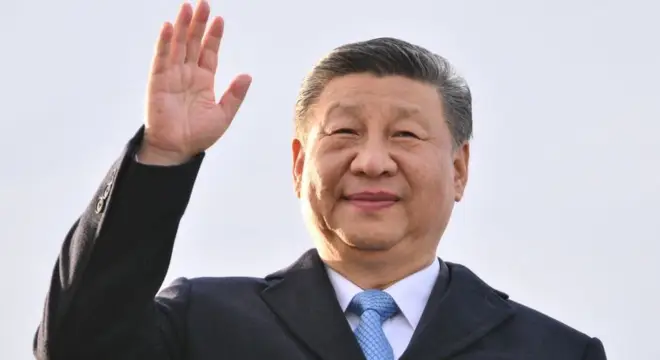|
Getting your Trinity Audio player ready...
|
Have you ever wondered why some countries make quick progress on defence but struggle when it comes to trade?
Why is South Korea pushing so hard for a currency swap deal with the US right now?
And what does this mean for South Korea’s economy, its global image, and even its history of human rights?
South Korea today finds itself at a turning point — with trade negotiations stalling, security cooperation advancing, and President Lee Jae-myung juggling diplomacy abroad while also addressing painful issues at home. From the fate of a $350 billion investment deal to an emotional apology for foreign adoption scandals, to how South Korea President Slams Anti-Foreigner Protests as “self-destructive,” Seoul’s leadership is trying to balance economics, security, and humanitarian values.
Let’s explore the issue in detail and see why this month could shape South Korea’s future direction..
Trade Talks: The Stalemate Over Currency Swap
Right now, South Korea is waiting for Washington’s answer on its trade proposals. The most urgent demand? A currency swap line with the US.
Seoul wants this to protect itself from exchange rate volatility, especially because it has promised to push $350 billion in investments as part of a broader deal. Without a swap line, that investment could cause financial instability — something South Korea cannot risk.
The US earlier agreed in principle to lower tariffs on South Korean imports, but the real issue is in the fine print. How will the investment package be structured? Who will benefit? These are the questions slowing things down.
Meanwhile, Japan has already sealed its own investment deal with Washington, putting pressure on Seoul not to fall behind. With the APEC summit around the corner, South Korea knows the clock is ticking.
Security Pact Progress: Defence Before Dollars
Interestingly, while trade talks are dragging, security cooperation with the US is moving much faster.
South Korean Foreign Minister Cho Hyun confirmed that a “rough agreement” has been reached on security. This includes:
- An increase in South Korea’s defence budget (8.2% rise announced by Lee Jae-myung for next year)
- Cost-sharing for the US troop presence in South Korea, something Trump has long demanded
- Negotiations on nuclear fuel rights, which could allow South Korea to process nuclear fuel for industrial purposes
For Washington, a stronger South Korean military is part of its bigger strategy in Asia — keeping China and North Korea in check. For Seoul, this is about proving it can defend itself while staying a trusted ally.
And with Trump expected to visit South Korea just before the APEC summit, both governments want a security announcement ready to go.
Historical Reckoning: Lee’s Apology on Foreign Adoptions
But diplomacy is not the only thing on President Lee’s plate. He also turned to a painful chapter in South Korea’s history: the foreign adoption programme after the Korean War.
In a rare apology, Lee acknowledged that the state was responsible for human rights violations tied to adoptions. A Truth and Reconciliation Commission investigation revealed how children’s identities were falsified to make them appear as abandoned orphans. Between 1955 and 1999, more than 140,000 South Korean children were sent abroad, many struggling with identity crises later in life.
Lee said he felt “heavy-hearted” when thinking of the pain, anxiety, and confusion adoptees went through. Unlike past leaders, he directly accepted the government’s role in the wrongdoing and promised better systems to protect adoptees today.
This step is not just about the past — it’s also about improving South Korea’s international image, especially as it seeks closer partnerships with the US and other countries.
A Humanitarian Gesture Toward North Korea
Even as he strengthens ties with the US, Lee Jae-myung has also reached out to North Korea.
Ahead of national thanksgiving holidays, he urged Pyongyang to restart family reunions for those divided by the 1950–53 Korean War. Tens of thousands of South Koreans, many elderly, still hope to meet relatives before time runs out.
Lee’s message was clear: humanitarian issues should not be blocked by political hostility. This softer gesture contrasts with his hardline push on defence, showing his strategy of balancing security with compassion.

Analysis: Why Trade Lags Behind
So why is Washington taking its time on trade, when security talks are moving fast?
- Currency swap sensitivities – The US is cautious about agreeing to something that impacts its monetary policy.
- Election cycle in the US – With politics heating up, Washington may not want to commit to a major economic package quickly.
- Leverage – By delaying, the US increases its bargaining power, knowing Seoul wants results before the APEC summit.
For South Korea, the risk is clear: a delayed trade deal could hurt its credibility and leave its export-driven economy vulnerable. On the other hand, progress on security reassures Washington that Seoul remains a reliable partner in Asia’s power game.
The Bigger Picture
President Lee Jae-myung is juggling three fronts at once:
- Economics: pushing the US for tariff relief and currency stability
- Security: committing more money to defence and seeking nuclear fuel rights
- Humanitarian issues: apologizing for adoption scandals and urging family reunions with the North
This multi-track strategy shows Lee wants to present South Korea as both a strong security ally and a morally responsible nation. But the success of this approach depends heavily on whether Washington delivers on the trade side.
Conclusion
October is shaping up to be a decisive month for South Korea. The country has made progress on defence, confronted historical wrongs, and extended an olive branch to the North. But one big question remains unanswered: will the US agree to Seoul’s trade proposals, including the vital currency swap line?
As the APEC summit approaches and Trump’s visit looms, the world will be watching whether South Korea can turn promises into results. For President Lee Jae-myung, the stakes couldn’t be higher — this moment could define both his leadership at home and Seoul’s standing abroad.


